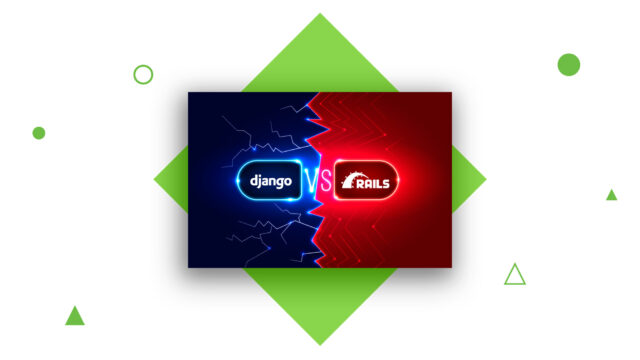Ruby on Rails and Python Django are two of the most popular web frameworks today, but which one is better? In this article, we compare Ruby on Rails and Python Django to help you find out which one you should use for your next project. We cover everything from getting started to deployment strategies and then give our verdict on which framework is the best of the two. Whether you’re a seasoned developer or just starting out, there’s plenty of information here for you!
What makes a good web application framework
When evaluating a web application development framework, you should consider three key elements. First, it must be easy to use. Second, it should be open source so that you can make modifications as needed without any licensing restrictions. Third, it must have a large user community with an active support system. This ensures that if you run into problems or issues, help will be readily available. While there are many frameworks out there today, we’ll focus on two of them in particular: Ruby on Rails and Python Django. Let’s take a look at each one.
Why choose Python Django as your Web Application Framework
If you’re thinking of choosing a Web application development tool, then you will have to make a choice between Ruby On Rails and Python Django. This can be really tough as both are really good frameworks for Web Development. But it has to be made. So how do you choose between two equally amazing frameworks for your next project? Well, let us give you some more insight into these two frameworks before making your decision. Here we go…!
Why choose Ruby on Rails as your Web Application Framework
Ruby on Rails can be used for a wide range of uses. The platform was designed to handle eCommerce, but there are also applications that work well for project management, social media platforms, content management systems (CMS), etc. In addition to handling a lot of different needs, Ruby on Rails is also beginner friendly. Some people believe it’s very complicated to learn – including experienced software developers – but you don’t need to be an experienced developer in order to get started with RoR.
When should you use Python Django vs Ruby on Rails?
Both Python Django and Ruby on Rails are excellent open-source web frameworks for building powerful web applications. Both have a loyal following and high-profile backers, but both also have distinct advantages over each other. In order to help you decide whether or not to use either of these two languages, we’ve created a decision tree to show you where they are stronger than each other. Below you’ll see a list of criteria that can be used to determine if one is superior to another. When it comes down to it though, what matters most is what your own strengths and weaknesses are as an individual programmer, so whatever language seems easiest or most intuitive will likely be right for you. If in doubt, experiment with both languages until you find one that clicks with your way of thinking!
How to choose between them
Choosing between frameworks can be tough, but you need to assess your needs in order to figure out which solution will be best for you. Many people choose a solution based on whichever one they know, and that’s perfectly reasonable—but you shouldn’t pick something based solely on its familiarity factor. As with any project (especially when dealing with things as important as software), ask yourself what your goals are and what constraints you have; don’t just think about how much you like a particular technology or language. Once you’ve got all of your requirements down, compare them against each other—it may take some extra time at first, but it’ll save time in the long run by helping keep focus.
Final thoughts about using either one.
Python’s Django framework has gained popularity for its ease of use, clear documentation, and active user community. For non-technical users (i.e., those without any programming knowledge), it’s possible to build simple websites using only a handful of basic commands. For advanced users, there are plenty of more complex features available too (such as custom user models). However, some developers complain that because it can be so easy to start out with, there’s less incentive to learn how to code properly when using Django – not much time spent reading through documentation or learning from other coders means you won’t get as good at coding! As well as being relatively easier to pick up than alternatives, it’s also free.
Summary of pros and cons for each
Python Django and Ruby on Rails are both prominent web frameworks, so it’s no surprise that programmers frequently ask if one is superior to another. This post takes a deep dive into both frameworks, highlighting each’s pros (and cons) to help you decide which platform would be best for you. Ruby on Rails is faster than Django and that’s why you should hire Ruby on Rails developers for your next project.







